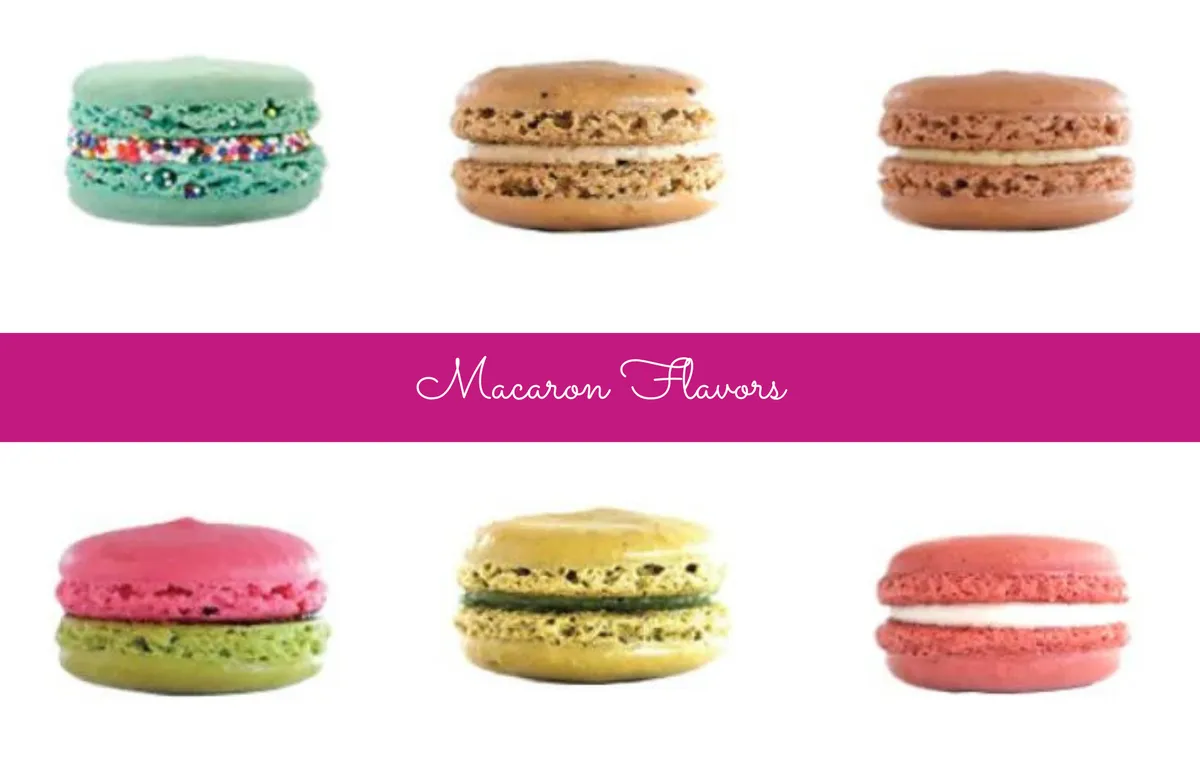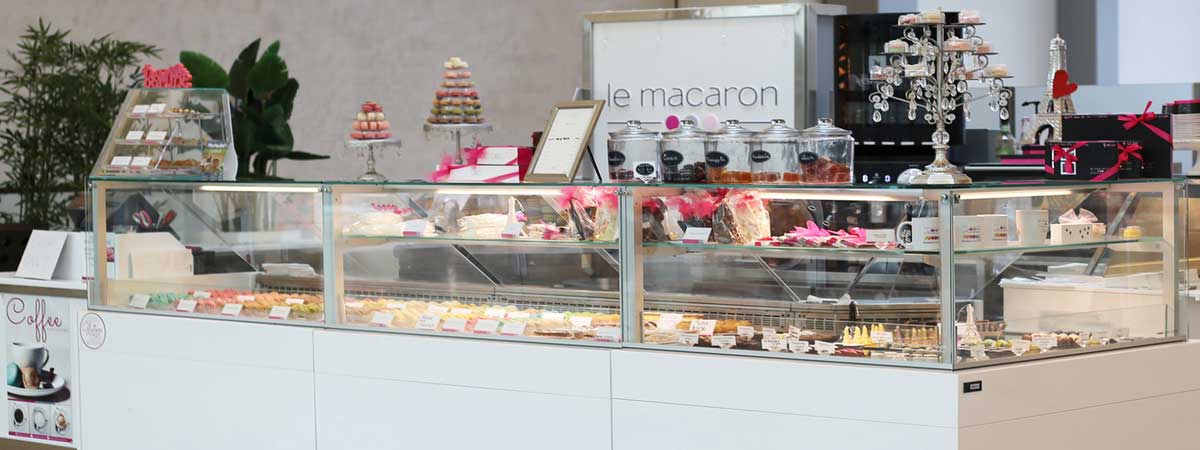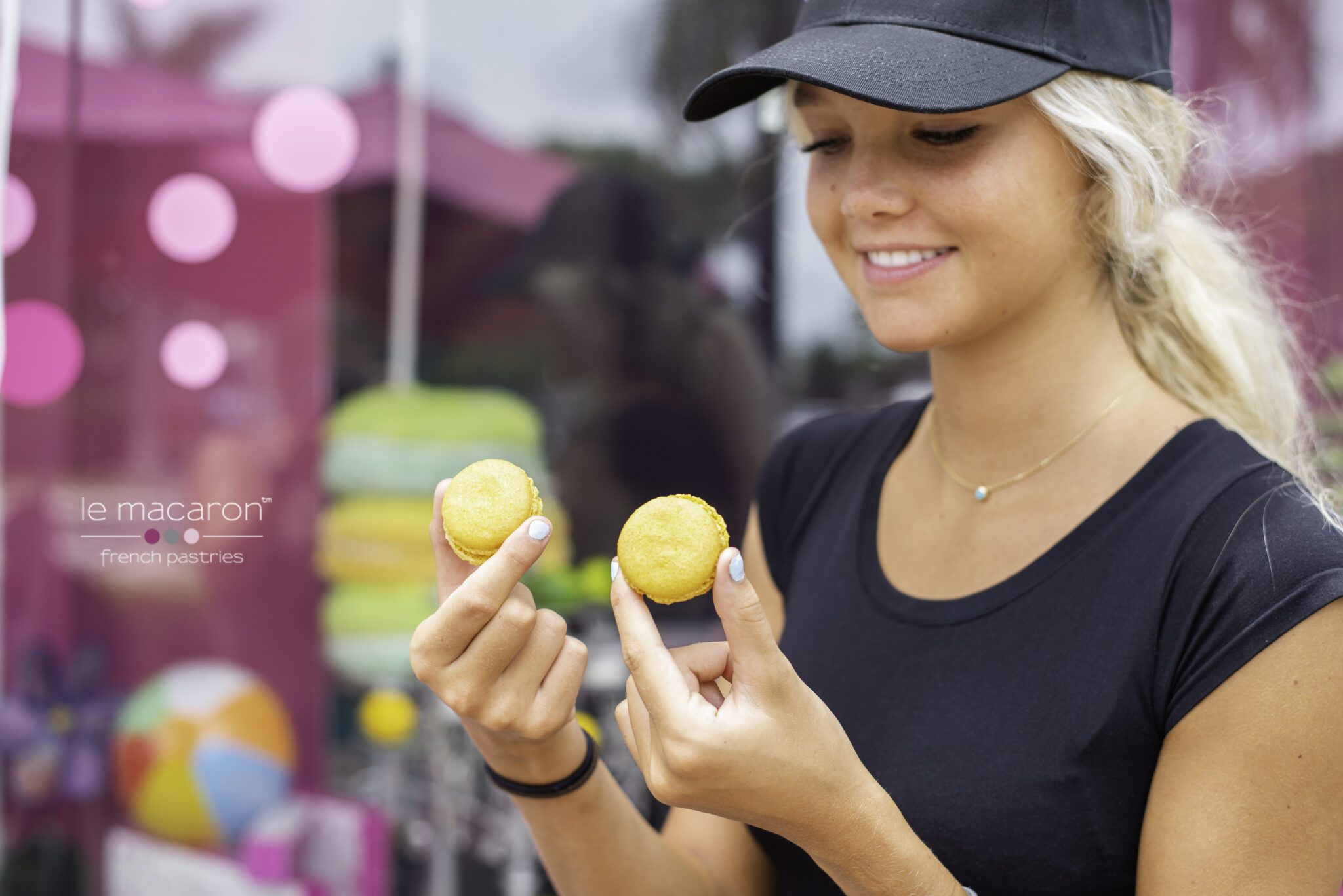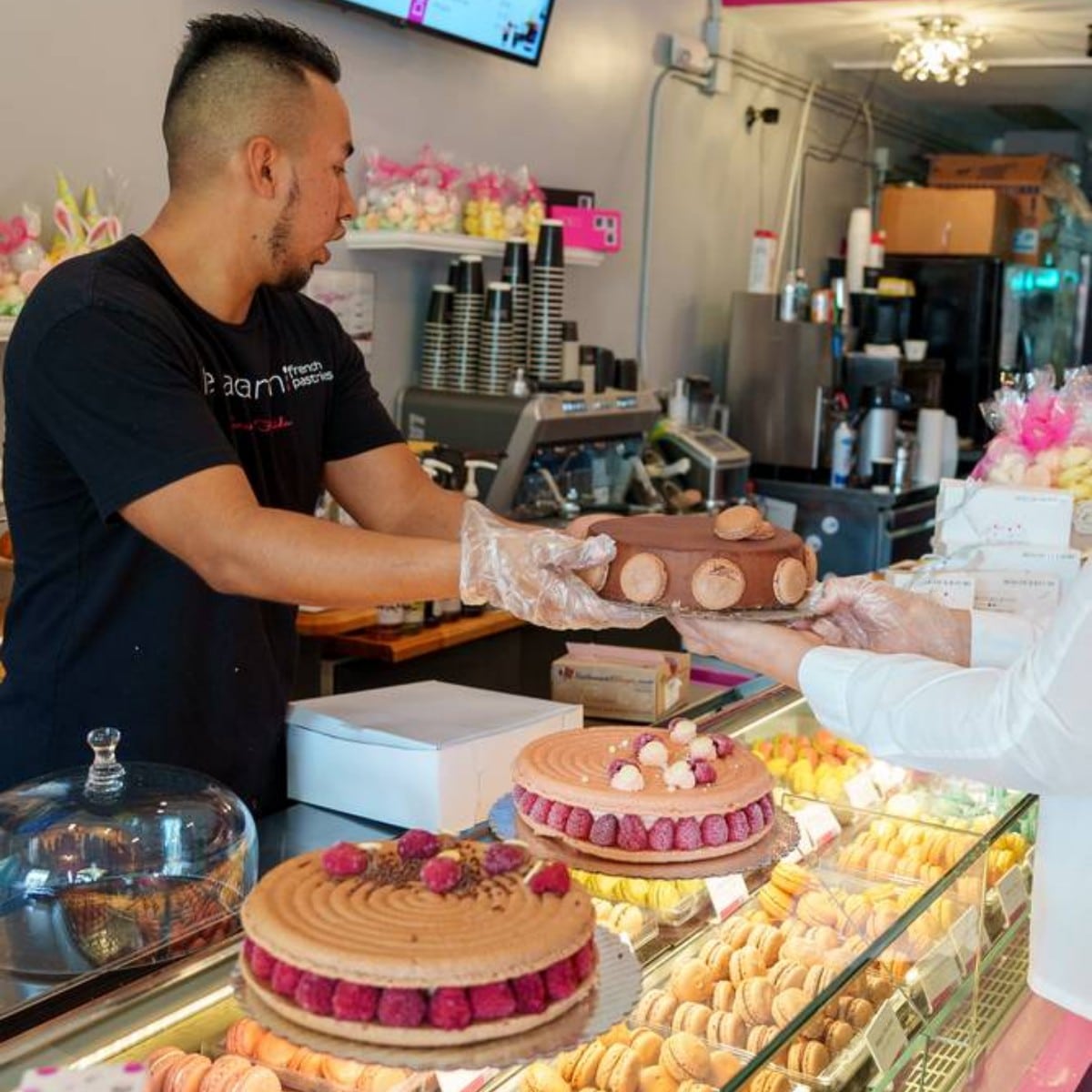Americans seem to be in love with French desserts these days. For example, in the West Village in New York City, Aux Merveilleux de Fred sits a block away from Barachou’s, both French pastry shops that make you feel as if you’re in Paris. Forbes article
And then there’s Le Macaron French Pastries, which has expanded to 65 shops in the U.S. in 24 states, of which 4 are company-owned and 61 franchised, with more on the way.
It started in St. Armand Circle in Sarasota, Fl. in 2009 when Rosalie Guillem and her daughter Audrey Saba opened Le Macaron, French for macaroons, which is a sweet-meringue dessert consisting of egg white, almond meal and often food coloring.
They self-funded the enterprise, without having to take out bank loans, SBA loans or raise money from investors.
A French macaroon specialist is proving that Americans have a yen for French desserts in many locales.
And it operates as a family affair, among mother, daughter and Didier Saba, Audrey’s husband in which Rosalie oversees the franchises, Audrey manages the confectionary’s logistics and HR, and Didier handles pasty production. Guillem had worked in human resources in France for a construction company but encouraged her son-in-law to attend culinary school, so he oversees the baking.
Guillem adds that one of Le Macaron’s underlying goals is to “invite guests to slow down and experience the best of France, in just a few bites.”
It’s been growing at a steady but manageable pace. In 2023, it opened 6 new locations and it’s forecasting 10 new shops in 2024 including new states Neb., Pa, and Del. Almost all locations have indoor seatings and are open 9 a.m. to 10 p.m. depending on location. So it should reach 75 shops by the end of 2024.
It started franchising in 2012, prompted by a customer, who expressed interest in opening his own Le Macaron. Though it is mostly franchised, Le Macaron doesn’t expect its franchisees to start each day preparing its French macarons. Instead, they are pre-made frozen in Sarasota and then shipped by truck to its various locations.
Guillem’s goal for its franchisees was to simplify the entire production process. “Not everyone is a good baker,” she says. She wanted its franchisees to focus on what is most important to their success, customer service and marketing.
She describes these macarons as relatively low in calories and gluten-free, about 80 to 90 calories per macaron, so people can indulge without feeling too guilty.
Besides macarons, Guillem says its most popular desserts are eclairs, gelato and napoleons. It also sells a variety of European and American coffees, teas and sodas, and in some shops, wine and champagne. Some shops offer sandwiches such as ham and cheese on a croissant, but many are dessert specialists.
Guillem says that the ideal franchisee is someone who has a strong belief in Le Macaron’s products; a strong desire to deliver excellent customer service; possesses business savvy, and is a team player. Franchisees undergo four days of intensive training in Florida, which consists of store set-up, following the operational manual, visiting a manufacturing facility; using the POS (point of sale) system, and product knowledge.
Consumer response on Yelp to the original Sarasota, Fl. location was mostly positive. Kareem from Clifton, Va, praised its coffee because it uses a Lavazza machine and Lavazza coffee “so their espresso was fantastic.”
Caroline from Bronxville, N.Y. liked the strawberry key lime and chocolate macaroons, but found the raspberry macaroon “undercooked and kind of gummy.”
Guillem says that Le Macaron can operate in nearly every location including larger cities such as Boston, Las Vegas and Nashville, and suburban locales as well.
Asked the keys to its future success, Guillem responds: 1) Maintaining the high quality of the product, 2) Sustaining the business models so every franchisee succeeds, 3) Keeping the customers happy.





